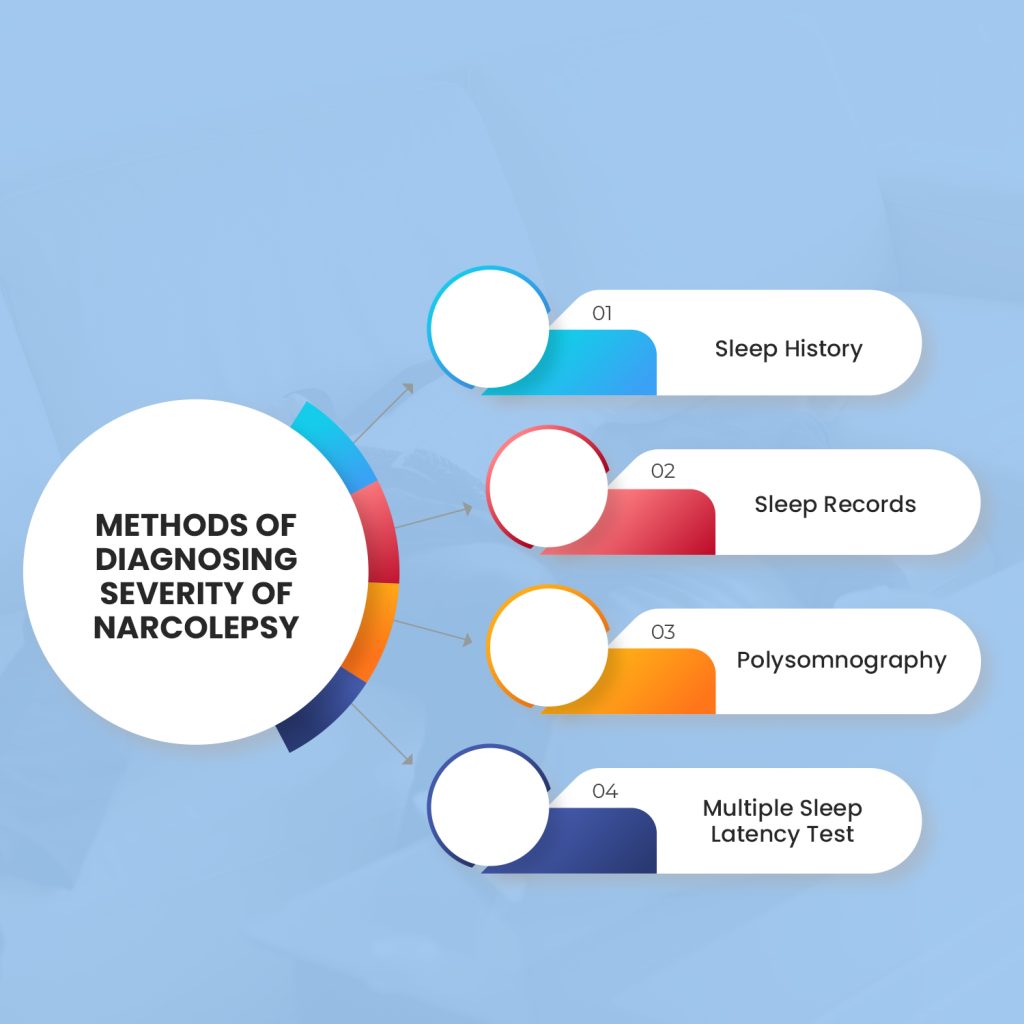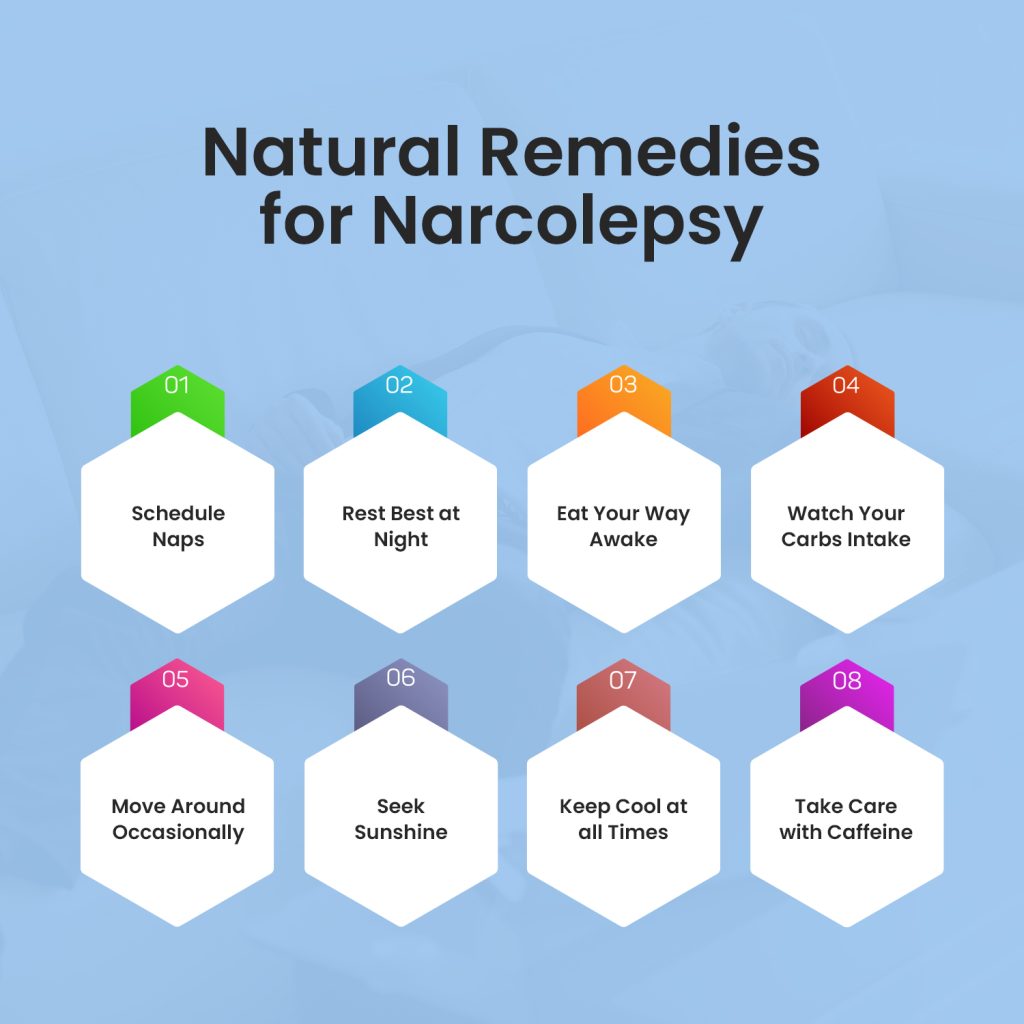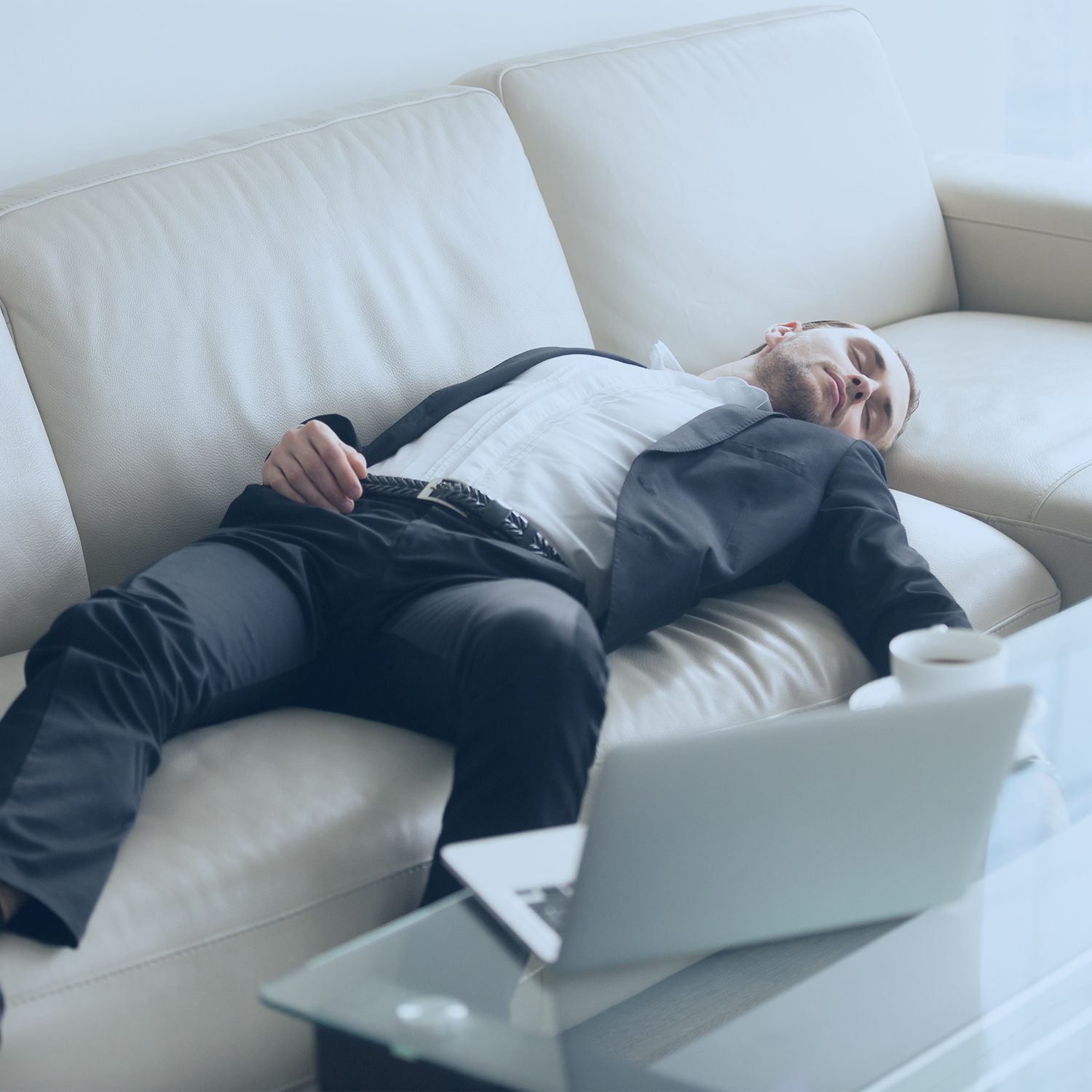Narcolepsy is a medical disorder characterized by excessive daytime sleepiness. Narcolepsy is a severe autoimmune disorder of the central nervous system that could affect both genders. About 1 in every 2000 people suffers from narcolepsy. The low prevalence of the condition makes it a rare disease and rare conditions have limited expert centers and clinical expertise. Therefore, the treatment of narcolepsy can become complicated. But you can easily manage the condition with natural remedies for narcolepsy. Before engaging in home remedies, you should first understand the condition’s nature, types, and symptoms.
Table of Contents
You will learn the following from this post:
What is Narcolepsy?
Narcoleptic is a severe sleep disorder that can dramatically affect one’s life and daily routines. This disease makes it very difficult to stay awake for a long time – regardless of the circumstances or occasion. For example, a person may fall asleep while cooking a meal, during an examination, while driving, during a meeting at work, or while participating in a team sport. Some of these may seem incredible, but they happen, and they’re legit people that suffer from this condition.
Cataplexy is relatively common and can accompany narcolepsy. This condition results in uncontrollable muscle weakness or paralysis that seems to be the effect of intense emotion, most often happy ones. For example, when a person is affected by cataplexy, such an individual may be laughing with friends. Then, suddenly, their knees buckle, or they become incapable of moving their face, arms, or legs. This kind of episode often lasts a couple of moments, and when the episode subsides, the person may suddenly fall asleep.
Signs and Symptoms of Narcolepsy
The severity of this neurological condition varies from person to person. Therefore, not everyone suffering from this condition will experience all of the following symptoms and signs. However, the common symptoms of narcolepsy include the following:
- A sudden case of muscle weakness known as cataplexy where temporary paralysis might affect the face, hands, legs, arms, and core. This is generally a result of the experience gathered when emotions run high, and the episode of paralysis typically lasts only a few moments.
- Insomnia and poor sleep quality.
- Loss of physical energy.
- Lack of mental focus, poor memory, brain fog, and poor cognitive functioning are common signs.
- Persistent and involuntary movements in the legs are known as restless leg syndrome.
- Snoring is a result of obstructive sleep apnea, a situation where the muscles in the throat relax and block the airway during sleep.
- Hallucination during sleep can be particularly terrifying and vivid upon waking up. Generally, the hallucinations make the dream feel like reality.
- Sleep paralysis can happen upon waking or just before sleeping. When this occurs, a person may be temporarily unable to speak or move for a short time. This can be frightening, especially for young children and teens.
- Excessive and uncontrollable daytime sleepiness can result in falling asleep unwillingly, even during an activity like working or driving.
- Changes in rapid eye movement sleep, also known as REM sleep. This REM happens when one is dreaming. REM can occur any time of the day in people suffering from narcolepsy. These people often transition quickly to the REM state within 15 minutes of falling asleep.
Kids may also experience additional symptoms:
- Unsteady gait
- Half-closed eyes
- Tongue sticking out
- Hyperactivity
- Irritability
You can avoid all these symptoms by following the simple natural remedies for narcolepsy given in this post.
Causes and Risk Factors of Narcolepsy
There are various theories about the cause of the condition, yet researchers have agreed that the real cause of the disease is still relatively unknown.
Known risk factors of narcolepsy include the following:
- Vitamin D deficiency
- Previous exposure to the H1N1 virus (swine flu).
- Women develop narcolepsy more than men.
- Autoimmune disorders like celiac disease, lupus, or rheumatoid arthritis.
- Exposure to specific environmental toxins like smoke, weed killers, pesticides, and heavy metals.
- Specific brain injuries like strokes, tumors, and trauma.
- Low levels of histamine in the blood.
- Heredity. About 10 percent of people may have a gene that affects hypocretin (a chemical responsible for healthy sleep-wake patterns. Hypocretin is also essential for other brain functions like the production of dopamine, serotonin, and norepinephrine.
- Low level of hypocretin in the brain.
- Age. Narcolepsy starts in people between 10 and 30 years of age.
- Family history. You have about 20 or 40 times the risk of developing narcolepsy if you have a family member that suffers from the condition.
Complications Resulting from Narcolepsy
- Public misunderstanding of the disease. Because many do not understand the condition, narcolepsy may severely affect a victim personally and professionally. For example, others might see the victim as lethargic or lazy. As a result, the victim’s performance may suffer at work or school.
- Interference with intimate relationships. Such intense feelings like joy or anger can trigger signs of narcolepsy like cataplexy, causing those affected to withdraw from emotional interactions.
- Physical harm. Sleep attacks may lead to physical harm to those suffering from narcolepsy. For example, you are at risk of a car accident if you are attacked while driving. In addition, you suffer the risk of burns and cuts when you fall asleep while preparing food.
- Obesity. People with narcolepsy are more prone to being overweight. The weight gain may be a result of low metabolism.
Diagnosing Narcolepsy

Your medical practitioner may carry out a preliminary diagnosis of the condition based on your sudden loss of muscle tone and excessive sleepiness during the day. After the first diagnosis, your doctor may refer you to a sleep specialist for proper evaluation.
A formal diagnosis may demand that you stay overnight at a center for a proper sleep analysis by the specialist. The methods of diagnosing and determining the severity of narcolepsy include:
- Sleep history: Your doctor will want to know your sleep history in as a detailed manner as possible. You may have to fill out the Epworth Sleepiness Scale, which uses a couple of short questions to determine your degree of sleepiness.
- Sleep records: You may have to keep a detailed diary of your sleep pattern for about a week or two so that your doctor can compare the relationship between your sleep pattern and alertness.
- Polysomnography: This test measures various signals with the aid of electrodes placed on your scalp when you are sleeping. You must spend a night at the facility for this kind of test. The test will measure the electrical activity of your brain and heart. It will also measure the movement of your eyes and muscles, including your level of breathing.
- Multiple sleep latency tests: This test measures the duration it takes you to fall asleep during the day. For example, you may need to take about four or five naps within two hours apart. During this nap, the sleep specialist will monitor your sleep patterns. People with narcolepsy easily fall asleep and enter the REM stage quickly.
The diagnosis will also help the doctor rule out other possible causes of your symptoms due to other disorders like chronic sleep deprivation.
List of Natural Remedies for Narcolepsy

There are several safe things you can try to keep yourself awake, especially when you need to be conscious to carry out your daily activities. However, sleeping when you are supposed to be working can suck. This is why I have compiled these natural remedies for narcolepsy that will help you battle your uncontrollable sleepiness.
Narcolepsy is a word coined in the 1880s to mean ‘sleepiness’ or ‘seized by somnolence’. A person who has this condition will find it challenging to stay awake through the daylight hours. Many go for prescription drugs to help manage this condition, but you may not need any medications. Instead, making changes to your diet, environment, and habit may go a long way in keeping you alert without facing the side effects of drugs.
Consider the following natural remedies for narcolepsy:
1. Schedule Naps
This process is often called strategic napping. Try to take some cat naps of about 15-20 minutes each day. But ensure that you cap your dozes to no more than 30 minutes. An extended period of sleep will make you more tired. If you have a job, the Americans with Disabilities Act requires that your employer make arrangements for you if you have narcolepsy – you have to convince your employer that you are a patient of narcolepsy. But I take no responsibility if your boss chooses to fire you instead. You can make use of your office, a wellness room, or a nursing lounge to create a quick rest for yourself.
2. Rest Best at Night
Many people with narcolepsy have restless sleep at night. That is why your body needs to make up for restlessness during the day. Try the following tips to gain more quality sleep time during your regular bedtime hours:
- Relax before deciding to go to bed. Keep away from alcohol when your bedtime is approaching.
- Try to retire to bed at the same time each night.
- If you wake up in the middle of the night, refrain from reaching for your phone or other electronics.
3. Eat Your Way Awake
If your condition is so severe that cataplexy accompanies it, you may be low in hypocretin, a hormone that helps you stay alert. Several foods that help produce more hypocretin include salmon, kimchi and fermented vegetables, dark leafy greens, sourdough bread, and other foods rich in omega-3 fatty acids.
4. Watch Your Carbs Intake
Many people feel drowsy after a big meal, and it can even be more prominent if you have narcolepsy. Limit your intake of sugar and other carbs to stay a lot more alert. Eat smaller meals and snack on berries, nuts, and other nutritious foods in between.
5. Move Around Occasionally
Walk around every 20 minutes to stay alert. Keeping yourself in the same position for an extended period may cause you to feel drowsy. If you work behind the desk, get up and visit the break room. You can also climb a few flights of stairs and down. You can also try the following ideas:
- Pace around while you are talking on the phone.
- Stay on your feet when you read emails and texts.
- Walk to the bathroom even if you don’t feel pressed.
6. Seek Sunshine
Rays from the sun will not only help you stay awake but also spark your brain to trigger the feel-good chemicals. Sunshine provides your skin with vitamin D, an essential remedy for narcolepsy. A low level of vitamin D has a close association with sleep quality. Therefore, always take some moments to enjoy the feel of the sunlight on your skin, especially the morning sun. Pair your morning strolls with scrambled eggs, whole grains, and other food that can help put more life into your steps. Nature is healing.
7. Keep Cool at all Times
Keeping your feet cold may go a long way in keeping you awake. A study has discovered that people with narcolepsy usually have warmer skin temperatures in their fingers and toes. Cooler hands and feet typically help them to stay more alert. You can reduce your body’s warmth with special cooling clothing. Avoiding warm drinks or meals may also help you keep cool. You can make use of fans to make your hands and feet chilled. The chiller, the better, but do not go to the extreme. You wouldn’t want to freeze yourself to death, would you?
8. Take Care with Caffeine
Tea, coffee, or other caffeinated drinks may help prevent drowsiness during the day. However, be extremely careful if you take stimulant medications like modafinil (Provigil) or armodafinil (Nuvigil). Mixing these drugs with caffeine can make your heart race. Stay away from caffeine after 4 pm.
Final Thoughts
Although narcolepsy is a rare disease, it can have an adverse impact on the quality of the workforce if left untreated. It also affects the social, psychosocial, and cognitive function of a person affected. This post aims to increase knowledge and awareness on the subject and offer natural remedies for narcolepsy.
Which Supplements Are Good for Narcolepsy?
Beans, peanut butter, nuts, whole grain or chickpea pasta, salmon, zucchini noodles, butternut, cauliflower, etc., are some of the effective and proven supplements that are good for Narcolepsy Cure.
What Essential Oils are Preferred For Curing Narcolepsy?
Frankincense, Lavender, Valerian, Marjoram, Neroli, etc., are a few of the most effective essential oils that are preferred for curing Narcolepsy.
What are the Symptoms of Narcolepsy?
Daytime Sleepiness, Loss of Muscles tone, Sleep Disruption, Sleep Paralysis, etc., are some common symptoms of Narcolepsy.
What helps narcolepsy naturally?
Regular sleep schedule, scheduled naps, exercise, healthy diet, avoiding alcohol and caffeine, mind-body techniques, exposure to natural light, maintaining a healthy weight, avoiding heavy meals, and hydration.
Is there a natural supplement for narcolepsy?
Vitamin B6, Vitamin D, Magnesium, Omega-3 Fatty Acids, Ginko Biloba, 5-HTP (5-Hydroxytryptophan), Melatonin.
These supplements may be considered for managing symptoms of narcolepsy.
What foods help narcolepsy?
High Protein Foods: Foods high in protein may promote alertness and help keep you awake. These include lean meats, eggs, nuts, seeds, legumes, and dairy products.
Whole Grains: Whole grains provide complex carbohydrates that are digested slowly and provide a steady release of energy. This could help prevent spikes and crashes in blood sugar, which could exacerbate feelings of sleepiness.
Fruits and Vegetables: They provide a rich source of vitamins, minerals, and antioxidants, which can support overall health and energy levels.
Healthy Fats: Foods like avocados, nuts, seeds, and fatty fish can provide sustained energy and are important for brain health.
What vitamin deficiency causes narcolepsy?
As of my knowledge cutoff in September 2021, there is no established evidence to suggest that a specific vitamin deficiency causes narcolepsy. Narcolepsy is thought to result from a complex interplay of genetic and environmental factors. A significant factor is a deficiency of the neurotransmitter hypocretin (also known as orexin), which is crucial for regulating arousal, wakefulness, and appetite.
There have been some studies suggesting that individuals with narcolepsy may have lower levels of vitamin D compared to those without the disorder. However, this does not imply that vitamin D deficiency causes narcolepsy. It may be that the lifestyle of people with narcolepsy (for instance, possibly spending less time outdoors in the sunlight due to excessive daytime sleepiness) leads to lower levels of vitamin D.
Post Disclaimer
The information contained in this post "8 Natural Remedies for Narcolepsy" is for educational purposes only. Always consult your primary care doctor before using the remedies that are provided. The information is provided by The Hidden Cures and while we do timely, in-depth research on the information that we provide to you, everything stated may not be up to date or accurate from the time it was written.

Hello Justen,
Might want to educate yourself as to what “hypocretin”is. It most definitely is not found in any foods; in fact, its actually a hormone that is produced by specific cells of the Orexin system in your brain!!
Kindly,
Anon. Narcoleptic in California
Hi Peter,
Sorry, that must have been a typo on our end. That is corrected, we appreciate your contribution to our information!
Hope you find relief.